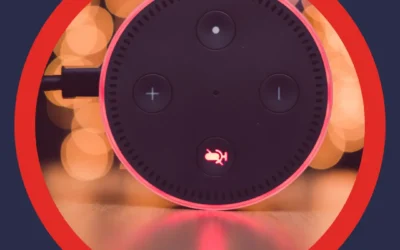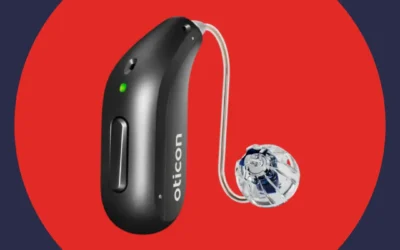The first missed word may not seem like much. Maybe you smile politely in a noisy restaurant, pretending you caught the joke. Or perhaps you crank up the television while your family complains it is too loud. These early moments are easy to brush aside. Yet they are the beginning of something many people resist admitting: the reality of hearing loss.
For most, denial comes first. People wait an average of seven to ten years before seeking help. By then, the cost is high. Strained relationships, workplace challenges, and even long-term health risks emerge. Acknowledging hearing loss early is not a sign of weakness. It is a step toward protecting your health, independence, and connection to the world.
The Early Signs You Should Never Ignore
Hearing loss rarely appears overnight. Instead, it creeps in gradually, often unnoticed until it begins disrupting daily life. Recognizing the earliest signs is one of the best ways to protect your hearing health.
|
Early sign |
What it might mean |
Why it matters |
|
Struggling in noisy places |
Trouble filtering background noise |
A common first symptom of sensorineural hearing loss |
|
Frequently asking “What?” |
Missed speech sounds |
Signals that clarity, not volume, is fading |
|
Turning up the TV or radio |
Needing higher volume than others |
Indicates reduced sensitivity to sound |
|
Feeling drained after conversations |
Mental fatigue from constant listening effort |
The brain is working overtime to fill gaps |
|
Avoiding phone calls |
Missing words without visual cues |
Suggests difficulty with speech clarity |
|
Family noticing changes before you |
Loved ones comment on hearing difficulties |
Others often notice decline sooner |
Early signs should not be brushed aside. The sooner you act, the more successful treatment can be. Hearing aids and other solutions work best when the brain is still accustomed to processing sound.
Why People Delay Confronting Hearing Loss
Facing hearing loss stirs emotions many would rather avoid. Some fear it means they are “getting old.” Others worry about the expense of treatment or imagine bulky devices no one could miss. Many simply think they are “managing fine.”
The truth is different. Every year of delay makes treatment harder and life more isolating. Small communication problems snowball into frustration at home and at work. Recognizing the issue early allows for easier adaptation, better outcomes, and stronger confidence.
|
Common worry |
What people believe |
Healthier perspective |
|
“Hearing aids make me look old.” |
Devices mean weakness. |
Today’s designs are tiny, stylish, and discreet. |
|
“It is not that bad yet.” |
Waiting causes no harm. |
Early treatment preserves memory and relationships. |
|
“They will cost too much.” |
Devices are unaffordable. |
Options exist across many budgets and insurance plans. |
|
“I can manage by myself.” |
Asking for help is failure. |
Taking control shows strength and foresight. |
Reframing beliefs is powerful. When people see hearing care as self-care, they feel ready to act.
The Hidden Risks of Ignoring Hearing Loss
Untreated hearing loss does more than reduce volume. It affects nearly every aspect of life.
- Relationships suffer: Miscommunication and repeated “What?” moments create tension and distance.
- Workplace performance drops: Missed details in meetings or calls lead to mistakes and lost opportunities.
- Safety declines: Sirens, alarms, and traffic sounds may go unheard, raising the risk of accidents.
- Mental health weakens: Isolation, frustration, and anxiety become common when conversations feel exhausting.
According to Johns Hopkins, untreated hearing loss is linked to depression, falls, and even cognitive decline. Their overview of the hidden risks of hearing loss makes clear: ignoring the problem is never harmless.
How Hearing Loss Affects the Brain
The ears and brain are partners. When sound does not reach the brain clearly, the brain works overtime to fill in the gaps. This extra effort drains memory, focus, and processing speed. Over time, it can accelerate cognitive decline.
The Lancet Commission on dementia prevention identified hearing loss as one of the most important modifiable risks for dementia. In other words, addressing hearing loss now can help protect your long-term brain health.
|
Cognitive function |
Effect of untreated hearing loss |
Benefit of treatment |
|
Memory |
Weak recall due to missed input |
Clearer input supports retention |
|
Focus |
Overwhelmed by noise |
Devices highlight speech and reduce distractions |
|
Processing |
Slower understanding |
Improved clarity speeds comprehension |
|
Cognitive reserve |
Reduced stimulation |
Ongoing sound input keeps the brain engaged |
Protecting your hearing protects your brain. This is one of the most powerful reasons to act early.
Types and Causes of Hearing Loss You Should Know
Not all hearing loss looks the same. Some types involve the outer or middle ear. Others originate in the inner ear or nerve pathways. Each requires a different approach.
- Our guide on decoding the most common hearing loss types explains these patterns in plain language.
- Many factors can play a role. Noise, medications, health conditions, or trauma are common triggers. Explore the ten leading causes of hearing impairment to see how diverse these causes can be.
- Sometimes hearing loss reflects a larger health problem. Learn about six diseases that may cause hearing loss and why full health evaluations matter.
- Different types require different treatments. See our guide on conductive versus sensorineural hearing loss to understand why diagnosis is essential.
Knowing the type and cause of hearing loss provides a clear roadmap for treatment.
Hearing Loss and Family Life
Hearing loss rarely affects just one person. It ripples through entire families. Spouses may feel ignored or frustrated by constant miscommunication. Children and grandchildren may notice disconnection when stories or jokes go unheard. Friends may stop inviting you to group outings if you always seem disengaged.
These strains are not caused by lack of love. They are the natural result of missing pieces in daily conversation. Over time, even simple moments like family dinners can feel like lonely experiences.
Hearing aids restore more than sound — they restore connection. By clarifying speech and reducing listening fatigue, they allow families to laugh, share, and connect without effort. Partners feel heard again. Children feel understood. The home becomes a place of conversation rather than frustration.

Hearing Loss at Work: Protecting Your Career
The workplace depends on clarity. Whether you work in an office, factory, or classroom, hearing connects you to performance and safety. Hearing loss chips away at that foundation.
Early signs include avoiding phone calls, missing parts of meetings, or feeling drained after long conversations. Over time, mistakes pile up. Confidence dips. Opportunities pass by. A 2023 study found that employees with severe untreated hearing loss face significantly higher unemployment than those who wear hearing aids.
How Hearing Aids Support Professional Success
- Clarity in meetings: Directional microphones and noise reduction highlight the speaker’s voice even in large groups.
- Improved phone calls: Bluetooth streaming sends voices directly into both ears.
- Energy savings: Amplification reduces mental strain, keeping you sharper through the day.
- Team collaboration: Better hearing supports accurate contributions and reduces misunderstandings.
Legal Protections
The Americans with Disabilities Act requires employers to provide reasonable accommodations for employees with hearing loss. These can include captioned phone systems, specialized headsets, or adjusted seating. But to benefit, you must acknowledge your hearing loss. Speaking up ensures both support and opportunity.
For a detailed discussion, see our article on how hearing loss may affect your job.

Hearing Technology That Restores Daily Life
Modern hearing aids are not what many imagine. Today’s devices combine powerful processing with sleek, discreet designs.
Everyday Features That Matter
- Noise reduction: Filters background sounds so speech comes through clearly.
- Rechargeable batteries: No fumbling with tiny disposables — just charge overnight.
- Bluetooth connectivity: Stream calls, videos, and music directly to your ears.
- Custom programming: Devices are adjusted to your exact hearing profile.
Accessories That Make Life Easier
|
Situation |
Device or feature |
Why it helps |
|
Watching TV with family |
TV streamer |
Clear dialogue without high volume |
|
Large meetings or classes |
Remote microphone |
Directly streams the speaker’s voice |
|
Religious services or theaters |
Loop receiver |
Connects directly to sound systems |
|
Busy restaurants |
Partner microphone |
Focuses on one voice across the table |
Together, hearing aids and accessories return confidence. Instead of nodding through conversations, you engage naturally again.
Untreated vs. Treated Hearing Loss: The Difference in Daily Life
This comparison makes clear why action changes everything.
|
Area of life |
Untreated hearing loss |
Treated with hearing aids |
|
Relationships |
Miscommunication, tension, withdrawal |
Clearer conversations and stronger bonds |
|
Work |
Missed details, reduced performance |
Equal opportunity and professional confidence |
|
Brain health |
Faster decline, higher dementia risk |
Ongoing stimulation and mental sharpness |
|
Safety |
Missed alarms and warnings |
Greater awareness and protection |
|
Emotional well-being |
Isolation, frustration, low confidence |
Engagement, resilience, and renewed self-esteem |
The difference is not subtle. Treatment restores connection, safety, and quality of life.
How Hearing Aids Support Healthy Aging
Better hearing is more than convenience — it is essential to aging well. Adults with untreated hearing loss face higher risks of falls, depression, and social isolation. These challenges speed up decline in both physical and mental health.
Hearing aids counteract these risks. By keeping the brain stimulated, they support memory and reduce the risk of dementia. By restoring communication, they encourage social activity, which protects emotional health. And by increasing awareness of environmental sounds, they reduce fall risk and promote safety.
Healthy aging is about independence. Hearing aids give older adults the confidence to keep driving, exercising, and engaging with friends. They protect not only hearing, but dignity and quality of life.
Protecting the Hearing You Still Have
Treatment helps, but prevention matters too. Once inner ear cells are damaged, they cannot be repaired. Protecting your remaining hearing ensures you enjoy sound for years to come.
- Manage noise exposure: Sounds above 85 decibels can cause damage.
- Use hearing protection: Earplugs or earmuffs reduce sound safely without muting life.
- Build recovery time: Step into quiet spaces after concerts or loud work shifts.
- Schedule regular checkups: Monitoring changes allows early treatment.
Think of prevention as preserving tomorrow’s quality of life. Each protective step adds up.

Practical Communication Strategies
Even with treatment, tough listening environments exist. Simple strategies make conversations easier:
- Reduce background noise when possible.
- Face the person speaking and use good lighting.
- Ask one person to speak at a time in groups.
- Use captions on calls, meetings, and television.
For more, explore our article on seven communication tips for people with hearing loss. These habits benefit not only you, but everyone in the conversation.
Straightforward Answers to Common Questions
It is normal to feel uncertain about hearing aids and treatment. People wonder if devices really work, how visible they are, and what daily life will feel like.
Our guide to the most common hearing loss questions provides honest answers. It covers everything from first fittings to daily maintenance. Knowing what to expect reduces fear and builds confidence.
Taking the First Step
Acknowledging the reality of hearing loss is life-changing. It restores confidence at work, connection at home, and clarity in daily living. With today’s devices, you can join conversations, enjoy entertainment, and protect your brain health.
Hear Life Fully Again With American Hearing + Audiology
Life is too short to miss laughter, stories, and music. At American Hearing + Audiology, you receive personalized, in-person care tailored to your needs. From precise testing to advanced fittings and ongoing support, our providers are here to guide you.
Take the first step today. Visit our American Hearing + Audiology locations page to find a clinic near you. Better hearing starts now — and it starts with you.



